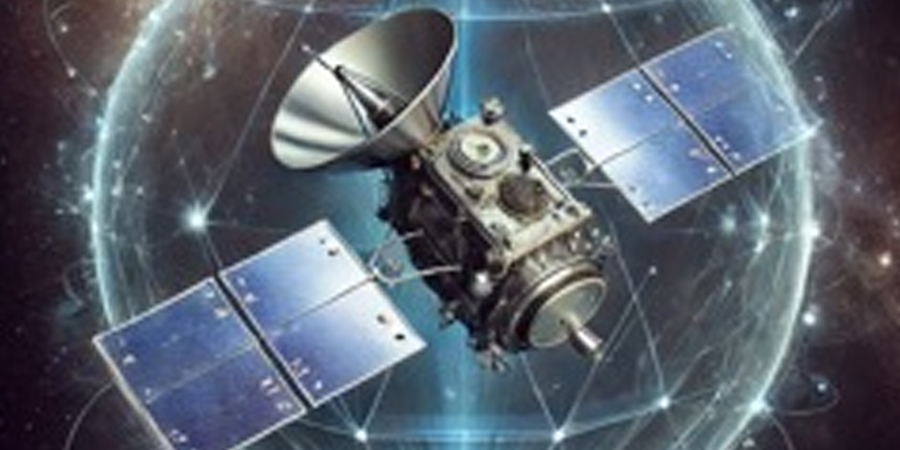Introduction
With nearly 50 years in the space community, I saw the urgent need for satellite cybersecurity at least seven years ago. Space is no longer the domain of just governments and superpowers—commercialization makes it both vital and vulnerable. Cyber threats to satellites, ground stations, and deep-space networks are real and growing. As space becomes more accessible, securing it isn’t optional—it’s a national security imperative.
The Growing Threat Landscape in Space
Cyberattacks are no longer confined to terrestrial networks. Space-based infrastructure has become a target for nation-states and cybercriminals alike.
One of the earliest documented satellite cyberattacks occurred in 1998 when hackers took control of the U.S.-German ROSAT X-ray satellite. Exploiting a compromised computer at NASA’s Goddard Space Flight Center, they manipulated the satellite’s onboard systems, ultimately damaging its batteries and rendering it inoperable.
Since then, space-targeted cyber threats have evolved dramatically. In 2008, U.S. satellites were reportedly compromised through Chinese-based cyber intrusions. In 2014, Norwegian researchers uncovered vulnerabilities in commercial satellites that could allow attackers to hijack control. These incidents culminated in a stark reminder of today’s risks: in 2022, a cyberattack disrupted satellite internet services across Europe just as Russian forces invaded Ukraine.
This evolution underscores a disturbing reality—space is now a battlefield, not just in the traditional sense but in the cyber domain as well. Ransomware attacks on satellite operators, GPS spoofing, and signal jamming are just the beginning. More sophisticated threats include malware designed to manipulate satellite firmware, denial-of-service (DoS) attacks targeting ground stations, and rogue nation-state actors seeking to disable critical defense assets in orbit.
The Consequences of a Cyberattack on Space Assets
A successful cyberattack on space infrastructure would have devastating consequences across multiple sectors:
- Defense and National Security – Military satellites provide reconnaissance, secure communications, and navigation capabilities. A compromised satellite could misdirect forces, expose classified intelligence, or cripple defense operations.
- Critical Infrastructure Disruptions – Power grids, transportation systems, and emergency response networks rely on GPS signals for synchronization. Space systems are often overlooked as part of critical infrastructure and are not always subject to the same security standards as their terrestrial counterparts.
- Financial and Communications Systems Impact – The modern banking system depends on satellites for secure transactions and data synchronization. A disruption could affect trillions of dollars in financial transactions.
- Space Debris and Collisions – A cyberattack that alters a satellite’s trajectory or renders it uncontrollable could lead to collisions, creating debris fields that threaten other spacecraft and future missions.
The Vulnerability of Legacy Space Systems
One of the biggest challenges in securing space infrastructure is the reliance on legacy systems that were never designed with cybersecurity in mind. Many satellites currently in orbit operate on decades-old technology, using outdated encryption methods or, in some cases, no encryption at all. Unlike terrestrial networks, which can be patched and updated regularly, space assets often lack the ability to receive real-time security updates. This creates an ever-widening gap between emerging threats and the security capabilities of space systems.
Additionally, supply chain vulnerabilities pose a significant risk. A single compromised component in a satellite’s hardware or software could serve as an entry point for adversaries, enabling them to execute attacks once the satellite is in orbit. The increasing use of commercial off-the-shelf (COTS) hardware in space systems exacerbates this problem, as these components may not have been designed with rigorous security standards.
This is not just a theoretical risk. In 2021, cybersecurity researchers found that commercially available satellite modems contained exploitable firmware vulnerabilities, potentially allowing attackers to infiltrate space networks before launch. If left unchecked, supply chain attacks could undermine space security before a satellite ever leaves the ground.
The Need for a Proactive Approach to Space Cybersecurity
Given the high stakes, a reactive approach to space cybersecurity is no longer sustainable. Instead, stakeholders must embed security into every phase of space system design. This means:
- Secure-by-Design Architectures – Future satellites must be built with security at their core, incorporating encryption, authentication, and intrusion detection as foundational elements. Onboard security should be updatable from ground operations to counter evolving threats.
- Zero-Trust Security Models for Space – Just as zero-trust principles have revolutionized terrestrial cybersecurity, they must now be applied to space, including continuous authentication, strict access controls, and real-time anomaly detection.
- Resilient Operating Systems and Software – Spacecraft must run on hardened, tamper-resistant operating systems that can withstand cyber intrusions and self-recover from attacks.
- Improved Incident Response and Threat Intelligence – Governments and private sector entities must collaborate on real-time threat intelligence sharing to detect and mitigate threats before they escalate.
- Policy and Regulatory Frameworks – International cooperation is critical. Just as air traffic control and nuclear nonproliferation agreements set global standards, space cybersecurity requires coordinated policies to protect shared assets.
- Supply Chain Risk Management – End-to-end security measures, including third-party audits, rigorous testing, and compliance verification, must be implemented to prevent malicious tampering of satellite components.
Collaboration Between Government, Industry, and Startups
Securing space from cyber threats is too complex for any single entity to tackle alone. Governments, defense agencies, satellite operators, commercial space companies, and cybersecurity innovators must work together to build a secure space ecosystem.
Public-private partnerships should be prioritized to develop and enforce security standards. Governments must support cybersecurity-focused space startups, integrating their technologies into national defense initiatives. Meanwhile, space companies must invest in cybersecurity talent and embed best practices into their operations from day one. Supply chain security must also be a collaborative effort, involving global partners to prevent vulnerabilities from being introduced at any stage of development.
Conclusion: The Time to Act Is Now
Space is no longer just the final frontier—it is the backbone of modern civilization. As we continue to expand our presence in orbit and beyond, we must acknowledge the critical role of cybersecurity in protecting these assets. The threats to space infrastructure are evolving rapidly, and failure to act now could have catastrophic consequences.
For governments, this means prioritizing cybersecurity in space policy and funding secure satellite designs. For commercial satellite operators, it means embedding security into every phase—from hardware selection to software updates. For cybersecurity professionals, it means innovating real-time defense mechanisms that can detect, analyze, and neutralize cyber threats before they cause damage.
If we embed cybersecurity into the DNA of space technology, foster cross-sector collaboration, and adopt a proactive approach to risk mitigation, we can ensure that space remains a force for progress—not the next battleground for digital warfare. Intelligent, autonomous defense mechanisms that detect, analyze, and neutralize cyber threats in real-time will be the key to securing the future of space operations.
The final frontier must not become the final vulnerability. The time to secure space is now.

About the Author
Rob Spicer is the Founder/CEO of 21SoftWare LLC, a cybersecurity company specializing in securing space-based systems and critical infrastructure. 21SoftWare provides advanced security hardening for satellite operating systems, protecting against cyber threats targeting space assets. The company focuses on defense, commercial, and industrial applications, ensuring resilient cybersecurity for satellites, transportation, and industrial IoT. Their solutions address emerging threats through proactive, zero-trust security architectures and supply chain risk management.
Read more at: thecyberexpress.com/cybersecurity-in-space




